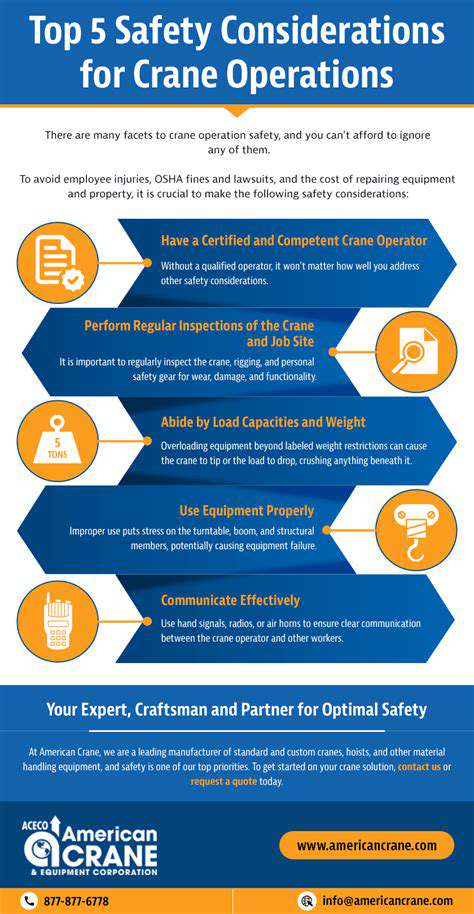What Are Over-the-Counter Medications?

Definition and Purpose
Over-the-counter (OTC) medications are drugs that can be purchased without a prescription. They are typically used to treat common ailments and symptoms, making healthcare more accessible to the general public. OTC medications span a wide range of categories, including pain relievers, allergy medications, and cold remedies.
The purpose of these medications is to provide relief for minor health issues that do not require a doctor's intervention. This allows individuals to manage their symptoms conveniently at home. However, it is essential to follow dosage recommendations and read the labels carefully to avoid potential risks.
Types of Over-the-Counter Medications
OTC medications can be divided into various categories based on their intended use. Common types include analgesics for pain relief, antihistamines for allergies, and antacids for digestive discomfort. Knowing the type of medication you need is crucial to effectively addressing your health concerns. Each category contains numerous products that might offer different active ingredients or formulations.
Some categories also include topical treatments, such as creams for skin irritations or antifungal medications. These topical options provide targeted relief and can often be found in local pharmacies. Proper differentiation between these types will help individuals choose the most appropriate product for their situation.
Safety and Precautions
While OTC medications are generally considered safe, there are still important precautions to keep in mind. Always read the label for active ingredients and any potential interactions with other medications you may be taking. Certain OTC medications can cause side effects or may not be suitable for individuals with specific health conditions.
Categories of Over-the-Counter Medications
1. Pain Relievers and Anti-Inflammatories
Pain relievers are some of the most commonly used over-the-counter medications. They are effective in managing mild to moderate pain and are essential for those dealing with everyday discomfort. The most popular pain relievers include acetaminophen (Tylenol) and nonsteroidal anti-inflammatory drugs (NSAIDs) such as ibuprofen (Advil, Motrin) and naproxen (Aleve).
Each type of pain reliever works differently. Acetaminophen is mainly used for headaches, muscle aches, and fevers, providing pain relief without anti-inflammatory properties. In contrast, NSAIDs not only relieve pain but also reduce inflammation, making them effective for conditions like arthritis and muscle sprains.
It is important to follow dosage recommendations to avoid potential side effects. Overuse of acetaminophen can lead to liver damage, while prolonged use of NSAIDs can cause gastrointestinal issues. Always consider consulting with a healthcare professional if you have underlying health conditions.
2. Cold, Allergy, and Cough Medications
Cold and allergy medications offer relief from the bothersome symptoms caused by allergies, colds, and the flu. These medications come in various forms, including antihistamines, decongestants, cough suppressants, and expectorants. Antihistamines like diphenhydramine (Benadryl) are effective in alleviating allergy symptoms such as itching, sneezing, and runny nose.
Decongestants like pseudoephedrine (Sudafed) work by narrowing blood vessels to reduce swelling in the nasal passages, providing relief from nasal congestion. Cough suppressants, such as dextromethorphan, help to control coughs by acting on the brain, while expectorants like guaifenesin assist in loosening mucus in the airways, making it easier to cough it up.
While these medications offer relief, it is crucial to be aware of potential side effects, such as drowsiness from antihistamines or increased heart rate from decongestants. Always read labels carefully and be cautious of interactions with other medications or pre-existing conditions.
Benefits of Using Over-the-Counter Medications
Convenience and Accessibility
One of the primary benefits of using over-the-counter (OTC) medications is their convenience. These medications are available at a variety of locations, including pharmacies, supermarkets, and convenience stores. This accessibility means that individuals can obtain the medications they need without requiring a doctor's prescription, making it easier to manage minor health issues on the spot.
Additionally, OTC medications can often be purchased at any time, providing essential relief for ailments that arise unexpectedly. This aspect is particularly beneficial for people with busy lifestyles, as they can find solutions to their health concerns without extensive planning or waiting for an appointment with a healthcare provider.
The straightforward nature of obtaining OTC medications also encourages individuals to take control of their health. They can become better informed about their symptoms and possible solutions, enhancing their ability to manage everyday ailments effectively.
Cost-Effectiveness and Versatility
OTC medications are generally more affordable compared to prescription drugs, making them a cost-effective choice for many individuals. This is especially important for those without insurance or those looking to manage their health care expenses responsibly. Many OTC options provide effective relief at a fraction of the cost of their prescription counterparts.
Furthermore, the versatility of OTC medications is noteworthy. They cover a wide range of ailments, from pain relief and cold symptoms to digestive issues and allergies. This broad spectrum allows individuals to treat multiple conditions with a single purchase, simplifying their healthcare routine.
Moreover, with advancements in research and product development, many OTC medications now offer targeted relief for specific symptoms. This allows for more personalized treatment options that can be tailored to individual needs, enhancing the overall effectiveness of self-care strategies.
Considerations and Safety Tips

Understanding Dosages and Timing
When using over-the-counter medications, understanding the correct dosages is crucial for safety and effectiveness. Taking more than the recommended dose can lead to serious health risks. Each medication comes with specific guidelines that must be followed carefully.
It is important to read the label meticulously, as different formulations may vary in strength and recommended dosages. For example, liquid medications may have different dosing increments compared to tablets. Always ensure that you are viewing the correct dosage for your age and health condition.
Timing also plays a significant role in the effectiveness of certain medications. Some over-the-counter drugs work best when taken at specific intervals, such as every four to six hours, while others may be more effective if taken at certain times of the day.
For individuals managing chronic conditions, maintaining a consistent schedule can help to maximize the benefits of the medication. It’s wise to create a medication schedule that includes all prescriptions and over-the-counter products to avoid confusion.
If you have any uncertainty regarding dosages or timing, consulting a pharmacist or healthcare provider is highly advisable. They can provide tailored advice to help you use these medications safely.
Possible Side Effects and Interactions
Every medication, including over-the-counter options, carries the risk of side effects. While many people tolerate these medications well, it's essential to be aware of the potential adverse reactions that could occur.
Common side effects of over-the-counter medications may include nausea, dizziness, or drowsiness. Recognizing these symptoms can help you respond appropriately and seek medical advice if necessary. Always consult the product label to understand the specific risks associated with the medication.
Moreover, over-the-counter medications can interact with other prescriptions and supplements you might be taking. It's critical to disclose all your current medications to your healthcare provider to prevent harmful interactions.
Some ingredients used in over-the-counter products can cause allergic reactions in certain individuals. If you notice any unusual reactions after taking a medication, seek medical assistance immediately.
As a precaution, keeping a list of all over-the-counter medications and supplements you are taking can help healthcare providers make informed decisions regarding your health. This practice is especially important when visiting new doctors or specialists.
When to Consult a Healthcare Professional
While many over-the-counter medications are safe for self-administration, there are circumstances when consulting a healthcare professional becomes imperative. If you have existing health conditions or are pregnant, it's wise to seek guidance before starting any new medication.
Similarly, if your symptoms worsen or persist after using an over-the-counter product, do not hesitate to reach out to your healthcare provider. Ignoring continued discomfort could lead to more severe health issues. Understanding when to seek help can greatly influence your recovery process.
In instances where you are taking multiple medications, it's crucial to have regular check-ins with your healthcare provider. They can help ensure that your over-the-counter choices do not conflict with other treatments you may be undergoing.
Additionally, if you're considering using over-the-counter medication for a child, consulting a pediatrician is essential. Children have different physiological responses, and what is safe for adults may not be appropriate for them.
Lastly, if unsure about the appropriateness of an over-the-counter medication for specific symptoms, err on the side of caution and seek professional advice. Your health and safety should always be the top priority.
When to Seek Professional Advice

Understanding Your Symptoms
It is crucial to identify the symptoms you are experiencing before deciding whether to treat them with over-the-counter (OTC) medications. Common ailments like headaches, colds, and minor pains can often be managed effectively at home. However, if symptoms persist or worsen, it may indicate a more serious underlying condition that requires medical attention.
Many people rely on OTC medications for relief from everyday issues. They provide convenient solutions but understanding when to seek help can prevent complications. For instance, a simple headache may be treated with ibuprofen, but if it is accompanied by vision changes or severe nausea, a doctor's visit is warranted.
Before making any decisions, consider keeping a symptom diary. This will help you track the frequency, duration, and intensity of your symptoms, making it easier to discuss them with a healthcare provider if needed.
When to Visit Your Doctor
There are specific signs that indicate it is time to consult a healthcare professional. If you experience symptoms like high fever, severe pain, or difficulty breathing, do not hesitate to seek immediate medical help. These may signify conditions requiring urgent treatment.
Other symptoms, such as prolonged fatigue or unintended weight loss, should also prompt a visit to your doctor. These signs are often overlooked but can be significant in diagnosing more serious health issues. Proactive healthcare is essential for maintaining good health, and addressing concerns early can lead to better outcomes.
Lastly, if you find yourself frequently using OTC medications to manage your symptoms, it may be an indication to consult a doctor. Misuse or over-reliance on these medications can lead to complications or masking of serious health problems, necessitating professional evaluation.